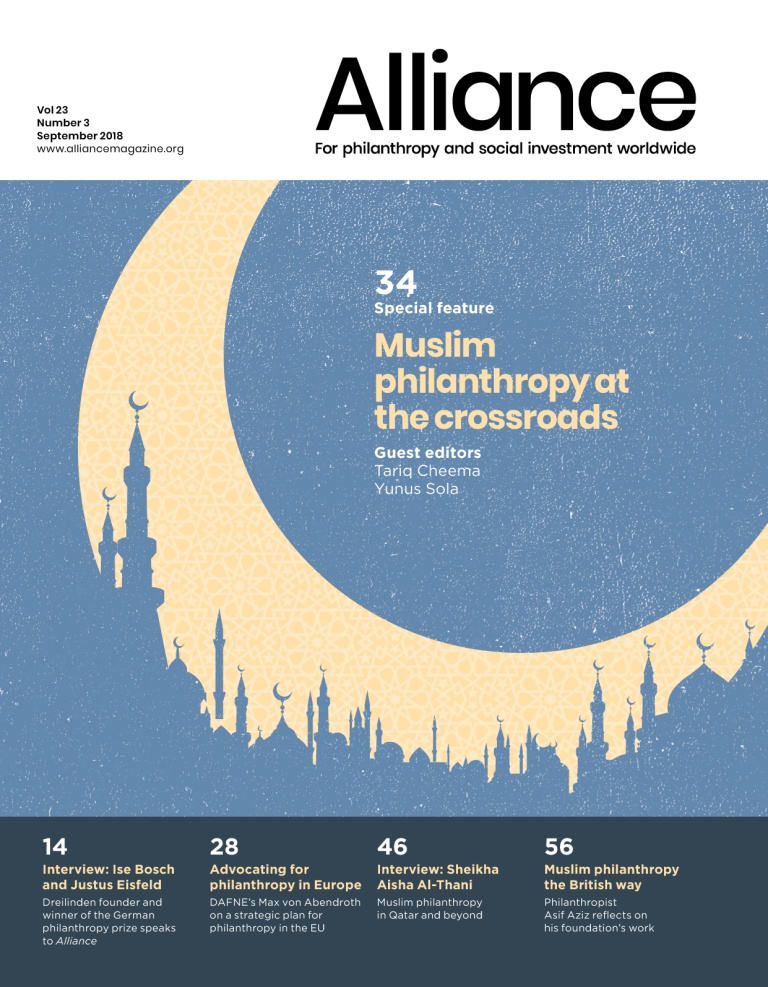 Reviewed by Paul Ramsbottom
Reviewed by Paul Ramsbottom
It remains relatively rare for histories of foundations to be written. This is a shame. When (as with this book) they are well told, they tend to be colourful stories that shed light on shifts in philanthropy as well as the wider social, cultural and political context in which foundations exist.
This history of the Gatsby Foundation – the vehicle of David Sainsbury’s philanthropy – is therefore to be welcomed. Georgina Ferry is particularly sure-footed in describing the foundation’s undoubted influence on science research and policy (notably in the fields of plant science and neurology). Opening and concluding chapters which attempt to place Gatsby in a wider philanthropic context internationally will be of particular interest to readers of Alliance. If anything – and perhaps in keeping with David Sainsbury’s own modesty – the book downplays the pioneering nature of some of Gatsby’s activities, for example in its varied social investment models.
The book articulates common themes in David Sainsbury’s[1] philanthropy which, although diverse, exhibits distinct characteristics across five decades. The foundation was established in the immediate aftermath of UK Prime Minister Harold Wilson’s memorable speech heralding the ‘white heat’ of the ‘scientific revolution’. And the application of science and technology to societal challenges – from farming to mental health – sits at the heart of Gatsby’s activities.
The foundation does not emerge from the book as a classic grantmaker. It is proactive and restless, keen to create the change referred to in the book’s title, heavily involved in establishing and running its own initiatives. This is a foundation which works very comfortably alongside government, helping to shape policy debate. The mode of operating has tended to lean very heavily on trusted advisers rather than on more classic models of peer review or academic panels. In Sainsbury’s own words, they have often considered themselves ‘effectively the R&D of government’.
Like most histories of foundations, this one is commissioned. This is both a strength and weakness. Georgina Ferry has had access to all of the key protagonists who are quoted extensively and add significant colour. It remains, however, essentially an oral history and there is little reference to any documentary archives of the foundation. The commission, alongside this reliance on interviews with those personally involved, inevitably leads to a somewhat varnished version of the history – dwelling more on triumphs than challenges.
The personal and institutional are parallel and interlinked stories. The book’s key figure, David Sainsbury, emerges as an admirable, even heroic figure. By the end, however, we still don’t entirely know him or his motivations and preoccupations – it’s curious, for example, that he is not a trustee of the charity and we are not told why. A veil is perhaps necessarily also drawn over the specific dynamics of decision-making beyond the odd aside (Judith Portrait notes, for example, in an unexplained comment that she is not ‘an interfering trustee’).
These are observations rather than criticisms. Above all, this is an elegantly written book about a foundation whose influence and example stretch well beyond its UK roots.
Paul Ramsbottom is CEO of the Wolfson Foundation
About the book
Published by: Profile Books
Price: Hardcover: £25, E-book: £19.99
ISBN: 9781781259160
To order: https://profilebooks.com/a-better-world-is-possible.html
Footnotes
- ^ A member of the Sainsbury family which founded the retail grocery chain of the same name. In addition to establishing the Gatsby Foundation, he was the UK’s minister of science and innovation between 1998 and 2006.






Comments (0)